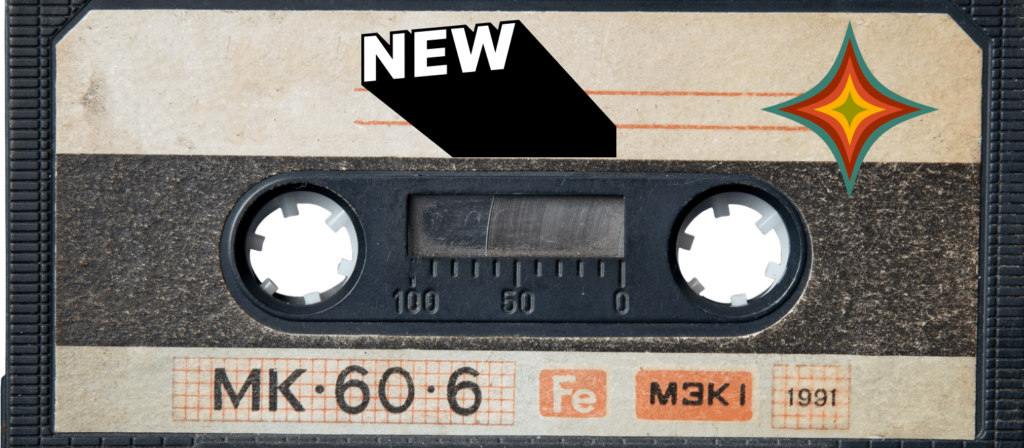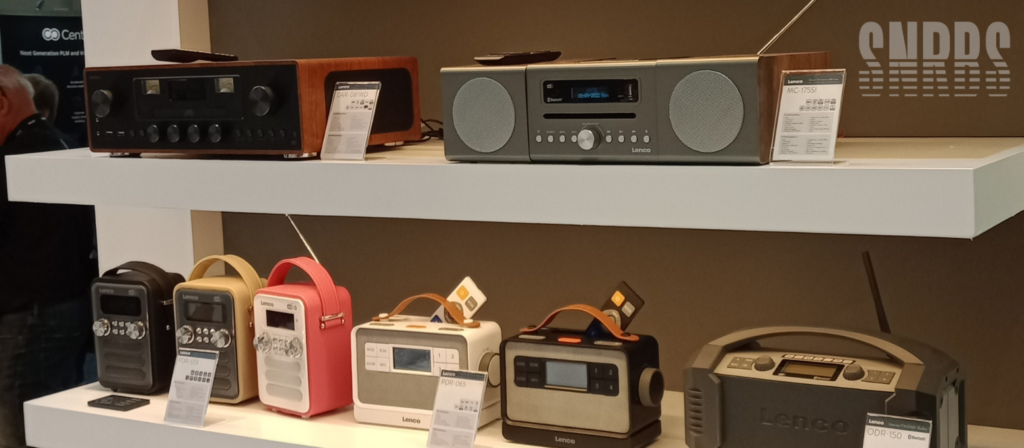news
Dieses Jahr heißt es Weihnachten nonstop, vom 2. – 26. Dezember. Aus SUNSET CITY wird während dieser Zeit das SNRBS CHRISTMAS RADIO. Mit dabei sind u. a. Schlagerweihnacht und Christmas Party.
Am 18. November findet erstmalig unsere Funkschau im gläsernen Studio, von 10 bis 20 Uhr statt. Verschiedene Sendungen, die Sie aus unserem Programm kennen, sind an diesem Tag hintereinander zu hören und auch live zu sehen. Mehr noch, es ist Open Door, d.h. man kann die Moderatoren direkt sprechen und über die Schulter schauen. 10.00 Jens Rückheim (Boulevard)11.45 Funkschau Intermezzo12.00 Karl Wilder, Natacha Cohen (Food Talk)13.45 Funkschau Intermezzo14.00 Natacha Cohen (Cocktail Hour)15.45 Funkschau Intermezzo16.00 Christian Abraham, Uwe Reuter (Radiothek)17.45 Funkschau Intetmezzo18.00 Blake Sabbath (SUNSET PARTY NIGHT)19.45 Funkschau Finale
Dear Bands, dear singers, dear songwriters, dear producers, We`re looking for the sound of the 20s. The last 20 years nothing exiting happened, just the same boring stuff -the last two decades. Where are the new trends and styles as we had it in the last century?Now it is time for a new sound! As Falco said: You have to ask that questions -Is it really new? Is it really music? Is it really new music? You have some? And you really have some? Let us know and send it to us. sunsetnetwork@live.com
Ab dem 1. December wird aus SUNSET CITY das SUNSET CITY Christmas Radio. Neben vieler klassischer und aktueller Weihnachtsmusik gibt auch verschiedene Radioplays und Shows. Zudem finden sich auch bekannte Sendungen aus unserem Programm, wie z. B. SUNSET Party Night, Moontrain und Schlagerkiosk in unserem Weihnachtsprogramm wieder. Wir wünschen eine frohe Adventszeit!
Nachdem sie 2020 nur für Fachbesucher, und 2021 gar nicht geöffnet war, fand dieses Jahr die Internationale Funkausstellung in gewohntem Rahmen statt – fast jedenfalls. Es waren merklich weniger Aussteller, die Hallen direkt unter dem Funkturm blieben geschlossen. Aber auch der große Besucheransturm blieb aus. Viel neues gab es auch nicht. 8K Fernseher und sprechende Kühlschränke sind so neu eben nun auch nicht, und haben bislang auch nicht den Weg zum Endverbraucher gefunden. Wirkliche Innovationen waren kaum zu finden. Auffällig, Bildschirme werden jetzt auch daheim ins Hochformat gedreht. Damit ist die Grundidee von 16:9, dem meschlichen Gesichtsfeld angepasst zu sein, dank Tik Tok Videos, nun auch hinfällig. Was die Technik nicht hergibt, muss das Design bringen. So waren auch bei dieser Funkausstellung Radios und andere Geräte im Retro Look eine optische Insel in der ansonsten eher virtuellen Welt. Viele Rundfunkanstalten sind leider nicht mehr vertreten. Der Nachrichtensender n-tv glänzte mit einem leeren Studio, und die ARD nutzte den großen Platz ihrer Fläche ausschließlich für woke Slogans. Vorbei die Zeiten an denen man miterleben, wie Fernsehen gemacht oder Promis treffen konnte. Als Fazit bleibt zu hoffen, dass diese eher unscheinbare Veranstaltung wieder zu altem Glanz zurückfindet.
Radio soll ungefähr so klingen wie RIAS, SFB, AFN in den 70ern und 80ern und irgendwie auch wie Radio Fritz zwischen 1993 und 1997?Gibts nicht? Doch! Warum auch nicht? Wir machen das Radio für die 20er mit allem was im letzten Jahrhundert gut war. Wenn Ihnen heutige Radiosender auf den Keks gehen, dann einfach besser machen! Einfach Programm mitgestalten. Wir suchen noch Freiwillige, die Interesse haben an unserem Programm, insbesondere dem Radioprogramm von SUNSET CITY, mitzuwirken. Wer möchte, kann sich melden unter:sunsetnetwork@live.com, per WhatsApp an 0171-1447499 oder eine Nachricht an die fb-Seite: facebook.com/mitmachen (Voraussetzungen siehe unten) Radio should sound like good old Radio, maybe like RIAS, SFB, AFN in the 70s and 80s and somehow like Radio Fritz between 1993 and 1997?Impossible? It isn`t! We are the radio for the 20s with everything that was good in the last century. If today’s radio stations gets on your nerves, then just make it better! Simply help shape our program. We are still looking for volunteers who are interested to participate in our program, particular the radio program of SUNSET CITY. If you want, you can contact under:sunsetnetwork@live.com, via WhatsApp to 0171-1447499 or a message to the fb page: facebook.com/mitmachen (requirements see below)
The Subways were kind enough to chronicle their North American tour for us, and we’ll be running their tour diary in several installments this week. Billy Lunn will be our guide, and as he writes, “Because so much usually ends up happening on our tours, we thought that this time round, whilst we’re on our exciting US/Canada tour, I’d keep a diary of all our happenings. As well as being a nice little insight for you guys into our daily lives, it’s also a nice way for me to recap and relive the days as they happen! Check out entries for Days 6-10 below. Early start today for a Converse live session, but it was a great excuse to get in a cab and see the sights of beautiful Boston. The wealth of redbrick buildings reminded us of the redbrick of Manchester in our own U.K., which adds a natural autumnal look to the city, and this wonderful quality was compounded by the blue skies and soft, orange sunlight! On our way we passed Harvard Business School on our right, and I wanted to take a detour over the bridge to Harvard Square in Cambridge so I could get a nice feel of what it’s like there. All of a sudden I felt pangs of wanting to study a postgraduate at a Boston uni after I finish my BA at Cambridge—assuming I graduate, of course! Haha! We didn’t take the detour; we like to be punctual!
You are about to learn the five critical elements that have fueled the success of all great musicians‘ careers. Until you possess these key elements for yourself, it will be nearly impossible for you to reach your musical dreams and build a successful career in the music business. Read below to discover these five key elements and take action on the information you learn: Music Career Success Key #1 – Don’t Set Realistic Goals All of the most well-known and successful musicians did not achieve their goals by thinking realistically about what seemed possible. On the contrary, they focused their mind like a laser ONLY on what they truly wanted. When you make your goals in line with the things you want most, you will be much more motivated to actually achieve them. More on this in a moment… Think about this – out of the following choices, which choice would inspire you to put all your time and energy into growing a music career?: Making a recording of a demo with a band and possibly playing a few shows around town. Writing chart topping songs for a killer band, then promoting your music by going on a massive world tour – playing to stadiums full of fans, earning tons of money from music sales alone and never working a regular job ever again. Even if your goals in the music business are entirely unrelated to releasing music, the point still applies: don’t let yourself accept anything less than what you truly want in your music career, just for the sake of being realistic. Life is too precious to live it by not doing the things you really desire. When you set goals for yourself that do not inspire you, it is nearly guaranteed that you will NEVER achieve the things you truly desire in music. All the biggest rock stars are people just like you. They began small – whether it was broke without any idea how they’d make it in music, lacking in musical talent or not having a band to play with… Just imagine where they would be now, if they would have told themselves that their music career dreams were unrealistic or didn’t seem possible. Well, of course they didn’t… they followed their dreams and went on to achieve them! You must do what they did. Start building your music career by focusing on what you WANT, not what seems possible. Music Career Success Key #2 – Manifest Your Musical Dreams Into Reality Before They Actually Are Reality Musicians who never achieve anything significant in this industry, build paths to their goals by starting from where they are in the present moment. On the other hand, musicians who achieve great success do something completely different. They plan their music career by beginning from the end point of achieving their goals, and work backwards to the present day. They imagine themselves having already accomplished their major goals, then build their lives around this vision. This is a much more effective way of accurately determining the actions required for putting together your music career. Music Career Success Key #3 – Start Living Or Start Dying The two keys I mentioned above are critical for building a successful music career. With this in mind, you need more than just goals and a plan of action to realize your musical dreams. You have to take action each and every day to bring yourself closer to your goals. You might think this is common knowledge, but you would be shocked at how many musicians give up on their musical dreams simply due to lack of effort (in terms of taking physical action). Visualize this scenario (I use this as inspiration for the professional musicians whom I mentor): You’ve just found out about a disease you contracted that requires major surgery. If you don’t get this surgery, you are guaranteed to die in no more than half a year. To make matters worse, the surgery is extremely expensive and cannot be covered by your insurance company (also you can’t borrow money to pay for it). So you have a decision to make: You can allow yourself to die, OR you can take whatever action is necessary to get the money needed for the surgery. Certainly this example is extreme, but it is a perfect illustration of the kind of mindset you need to have in order to build a successful music career. Making big moves (by taking action) in your music career is completely different than sitting around waiting for things to happen for you (allowing yourself to ‚die‘). With this in mind, hard work/consistent action does not necessarily equal music career success, when you don’t know exactly what you should be doing to reach your goals. Music Career Success Key #4 – Have MASSIVE Reasons For Achieving Your Musical Goals No matter what you do, something will always go wrong in your music career plans. Whenever you are faced with unexpected events in your music career, this is the time when your commitment will be put to the test. For instance, here are some challenging situations you could face: Working at a day job you hate while regretting the fact that you never developed a music career backup plan to help you make a living doing what you love. Playing at crappy bars all the time with your band because you don’t know how to move to bigger venues. Trying to record an album, but doing so at an extremely slow and frustrating pace because you never practiced developing your recording skills. Working with unmotivated band members who are bringing you (and the entire band) down. Not understanding how to attract more music fans to listen to the music you worked so hard to create. Here is what you need to do in order to maintain your commitment and dedication to achieving your music career goals: Take out the piece of paper you have that contains the list of your
As festival season rapidly rolls in, we’re constantly being reminded of the continuing lack of diversity on our lineups. With a recent study indicating 86 per cent of the lineups of 12 major music festivals last year including Glastonbury, Reading and Leeds and Creamfields were male, it seems that the ears at the top are still unwilling to break up the boys club that makes up our live music industry. Without music, life would be a mistake. That’s not to say the diversity – and demand – isn’t there. With collectives such as SIREN and Discwoman championing female talent in the electronic music scene, and artists such as Björk, Grimes and Kesha speaking out in defence of women’s rights in the industry, there’s never seemed a more appropriate time to shake up our lineups. One group unwilling to wait for the wider industry to take note is Sad Grrrls Club. Originally founded by Rachel Maria Cox as a record label and booking agency in order for them to support non-binary and female acts and challenge Australia’s male-dominated live music scene, Cox has grown the organisation from it’s DIY roots to fully fledged music festival taking place across two cities. Inspired by the Riot Grrrl movement as well as Audrey Wollen’s Sad Girl Theory, Sad Grrrls Fest showcases bands and musicians that have at least one female or non-binary member. But are all-female lineups breaking down the gender divide, or widening it even further? Below we caught up with the festival’s founder to discuss safer space policies, reverse sexism and the power of expressing our emotions.
Chances are, you are already ruining your potential to succeed in the music industry because you believe in one or more music career myths. How do I know? I am sent e-mail messages on a constant basis by tons of musicians (all seeking the answers to the WRONG questions). These are questions that may seem like good questions on the top level, but are really highly damaging questions that take them far away from their musical dreams. To put together a successful career in music as soon as possible, you’ve got to know the questions you do NOT need to be seeking answers to, and understand how to ask much higher quality questions that will put you on the right track toward reaching your music industry goals. These are the 4 worst music career questions you should avoid asking in order to build a successful career as a professional musician: Bad Music Career Question #1: Do I Have To Become A ‚Starving Artist‘? A lot of people believe that making a living as a professional musician means one of two things: Either you ‚make it‘ and go on to tour the world and sell millions of albums or you ‚become a starving artist‘ and have to play at crappy bars and street corners just to get by. This music business myth makes sabotages people’s careers from the start, either by making them believe they need to get full time jobs unrelated to music and ‚try to do music on the side‘, or be afraid of trying to enter the music business. Fact is, the music business is made up of a large middle class and there are countless ways to earn a living. You’d be surprised at how easy it is to make a good living in the music industry versus becoming successful in an outside field. However, before you will make a lot of money, you must stop asking low quality questions. Stop worrying about becoming a starving artist and start envisioning all the different ways you can make money as a musician. As you work in the music business, you are not forced to live from one paycheck to the next like in a normal day job. Instead, it’s always possible to be earning multiple sources of income at the same time. This makes becoming a professional musician a much more stable career choice since you don’t have to be dependent on just ONE source of income. In addition to the obvious ways that musicians seek to make money in music (selling albums/downloads, playing live shows or recording as a session musician), there is one thing you can do right now that will quickly boost your music related income: Start growing a music teaching business. This will immediately produce multiple sources of income (your students) for you while you work much less than full time hours each week. When you build many sources of musical income as discussed above, it’s very possible (and not as hard as you might think) to annually earn more than $100k in your music career (I know this, because I’ve helped many musicians to do it). Bad Music Career Question #2: How Do I Get A Recording Contract? In order to understand why this is not a good questions to ask, answer this: „Why should someone give YOU a recording contract?“ If you think it’s because you write good music… try again. This is never a good enough reason for someone to sign you to a recording contract. No one is going to invest many thousands of dollars into you just because you can write good music. This would be WAY too risky of an investment (so much so that it doesn’t even make sense). Imagine that you saved up $200,000, would you then go to a casino and put it all on the line for one spin of the roulette? OR would you instead invest it into someone who has proven that they can help you earn even more (at least at a smaller level)? No doubt, you would make the wise choice and invest it into someone who would help you make more money. This is how recording labels think. So stop wondering about how you can get signed to a recording contract and start turning yourself into a ‚wise investment‘ that any label would immediately see as valuable. This requires much more than writing great music, playing your instrument well or having a Facebook page. Here are the actions you should be taking to make yourself into a valuable investment for a record company: 1. Understand what the music industry is looking for in musicians before they begin working with them. 2. Work every day to build your music career. Record companies want to see that you have a good track record before they will begin working with you. The more things you do as an independent musician, the more likely it is that you will gain the interest of a record company. 3. Get music industry training from a successful mentor who has already accomplished big things in the music industry and helped others get signed to recording contracts. Once you begin developing your music career on your own, you will make yourself like a beacon of light and record companies will come searching for YOU! Bad Music Career Question #3: How Can I Get My Music ‚Heard‘ By More People? The majority of musicians want to get their music heard by as many people as possible, believing that this will help them earn money and become successful pro musicians. However, the quantity of people who listen to your music is not very significant in and of itself. What really matters is the amount of people you are able to turn into a highly dedicated fans who will do anything to support you and your music. Stop asking yourself how to get more people to hear your music and start transforming anyone who is already your fan into












 SNRBS SUNSET CITY
SNRBS SUNSET CITY 